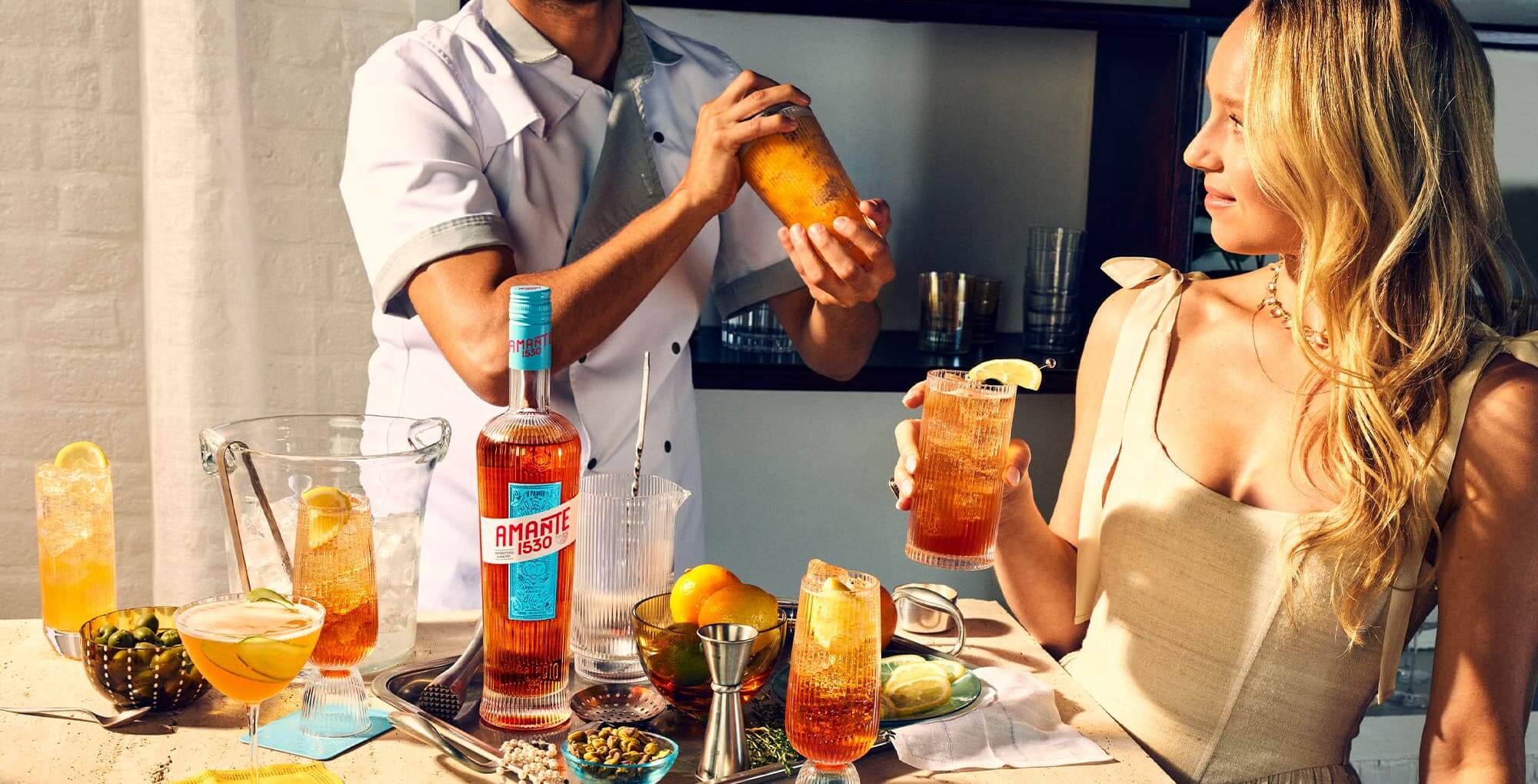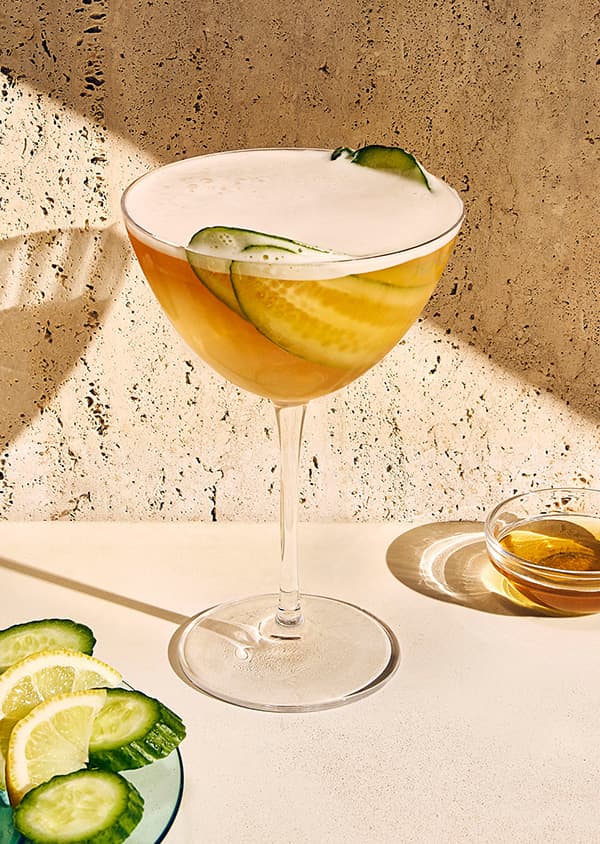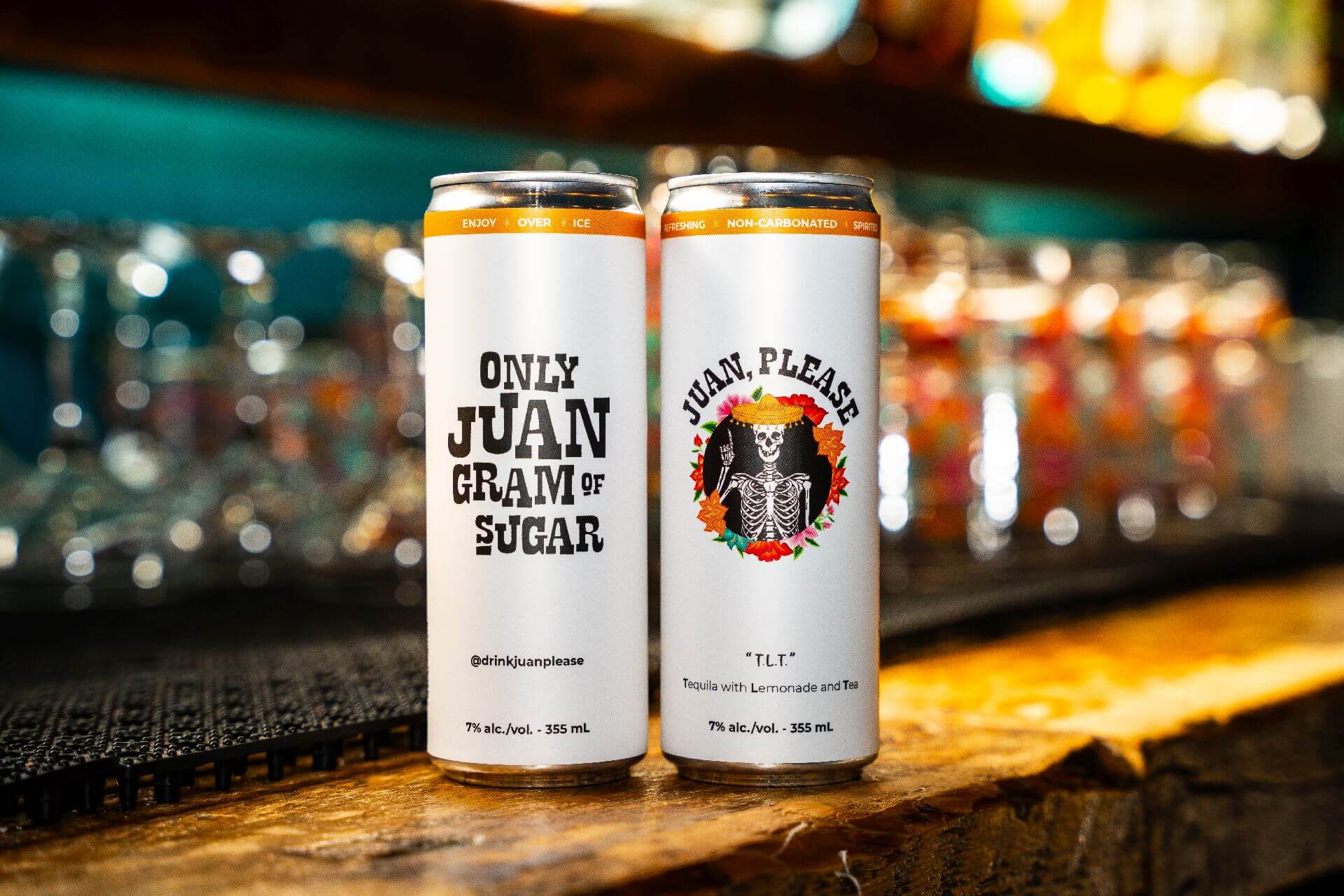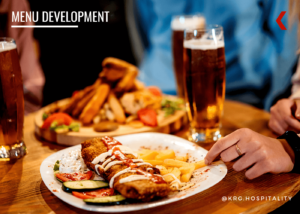Tales of the Cocktail Announces 2024 Agenda
by David Klemt
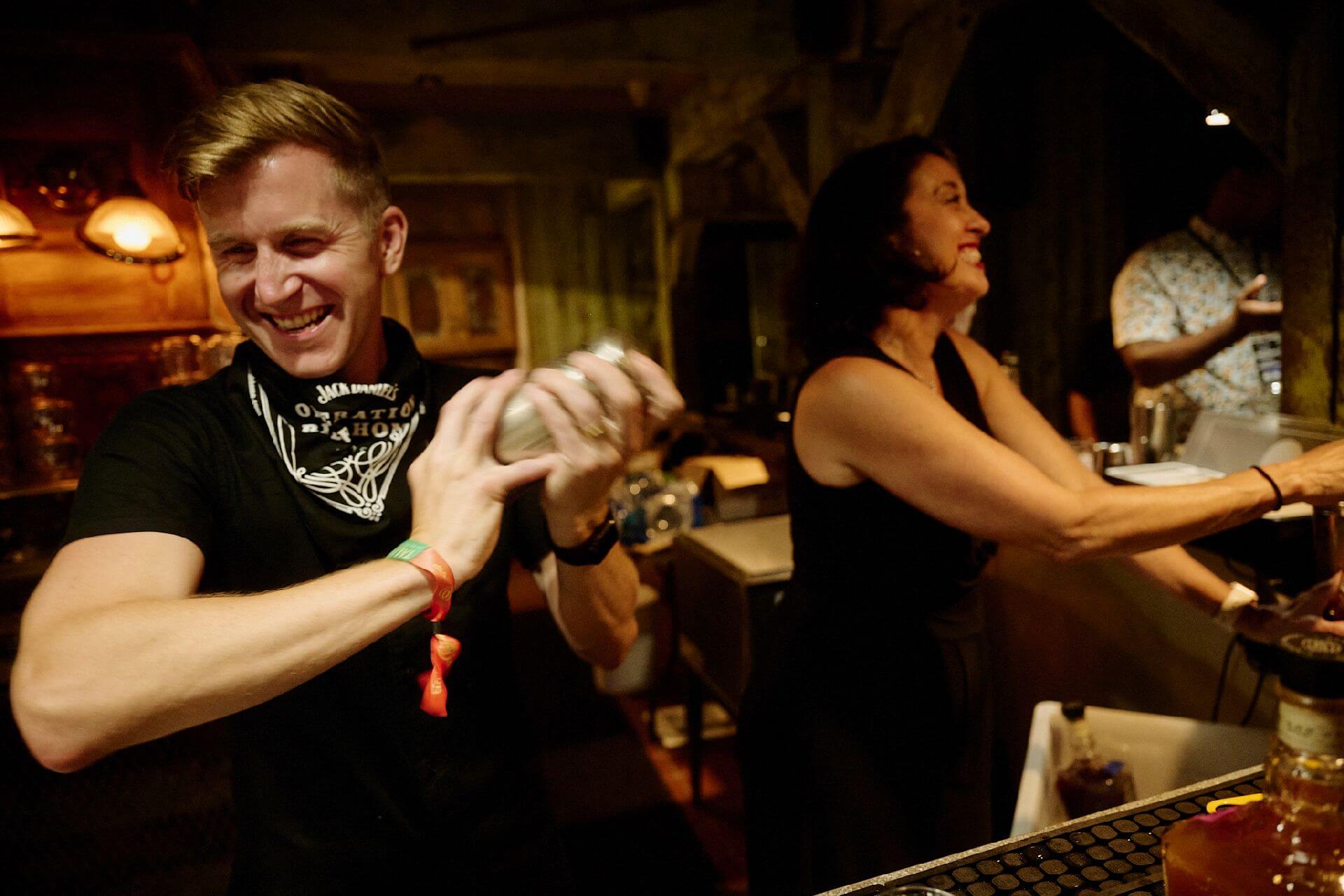
Tales of the Cocktail has revealed the 2024 agenda, and it’s absolutely loaded with incredible networking, health and wellness, and educational opportunities.
There’s an array of activations and special events lined up for this year. For example, the New Orleans Spirits Competition returns to Tales of the Cocktail for its third edition. To learn more about this event—including why people who want to participate need to line up early—listen to episode 115 of the Bar Hacks podcast. (Apple Podcasts link | Spotify link)
Of course, one of the biggest events is the 2024 Spirited Awards ceremony, taking place Thursday, July 25.
Truly, Tales is coming out swinging for 2024. For more information, please review the official press release below.
Cheers!
NOW LIVE: TALES OF THE COCKTAIL® 2024 CONFERENCE AGENDA AND TICKETS
NEW ORLEANS, LA (May 13, 2024) — Tales of the Cocktail Foundation (TOTCF) is pleased to announce that today, on World Cocktail Day, the Tales of the Cocktail® (TOTC) 2024 conference agenda and tickets are now live via the Foundation’s website. Toasting its 22-year legacy of honoring the craft, culture, and business of the global cocktail community, TOTC returns to New Orleans from July 21-26, offering an immersive experience created to “Inspire” both industry professionals and cocktail connoisseurs alike.
Beginning today, a variety of daily and weekly passes, discounted bartender passes, individual event tickets, and the all-new $10 Wellness Week Pass are available for purchase on a first-come, first-served basis. Complete details about TOTC 2024 ticket options can be accessed on Tales’ ticketing platform.
“It’s an honor to unveil the 2024 Tales of the Cocktail agenda, and with it, invite the cocktail community to join us in New Orleans for the 22nd annual conference,” said TOTCF CEO Eileen Wayner. “Our dedicated team, along with the invaluable TOTCF Committees, Board of Directors, and partners have meticulously cultivated a conference agenda that’s brimming with educational programming, wellness and networking opportunities, tastings, awards celebrations, brand showcases, and more. The 2024 agenda guarantees an unparalleled week of discovery, connection, and above all, Inspiration, as we explore this year’s annual theme.”
TOTC has long been a love letter to New Orleans’ cocktail culture and a celebration of the rich tapestry of global cocktail traditions—both new and timeless. The 2024 conference lineup is no exception, featuring another stellar slate of curated educational seminars; Beyond the Bar activations; Brand-Hosted Events; Day of Service; Meet the Distillers; New Orleans Cocktail Tours; the annual Spirited Awards®; Tales Catalyst; and more.
Educational Seminars, Panels, Q&A Sessions, and More
Tales of the Cocktail will feature more than 65 educational sessions, including seminars, workshops, and tastings across Tales’ three educational streams—Business, Culture, and Beyond the Bar—which will be presented by 175 industry leaders. Chosen from more than 380 impressive proposals, the 2024 seminar lineup was hand-selected via a rigorous process by the Tales of the Cocktail Education Advisory Committee. This year, the TOTC seminar schedule is proudly led by over 48% women presenters, 30% BIPOC presenters, and over 33% international presenters from countries including the Netherlands, Portugal, Singapore, the UK, and more.
Highlights from this year’s seminar schedule include:
Business
- Contemporary Employee Relations: Centering Dignity by Laura Louise Green with John B. Reyna, Andi Ryan, and Irene Shiang Li
- More of the Same: Expanding Your Bar Concept by Meaghan Dorman with Indra Kantono, Gates Otsuji, and Laura Torres
- Pouring Foundations: Financial Planning for Bar Upgrades and New Constructions by Matt Edgar with Hannah Cash and Johann Moonesinghe
- Up Your Probability of Profit: Consumer Insights to Operate Smarter not Harder by Adrian Biggs with Rodrigo Leme, Nikki Hueckel, Andrew Hummel, and Simone Ventura
Culture
- Akvavit 101 by Bex Almqvist
- H2Know: Water in Cocktails 101 by Kate Gerwin and Martin Riese
- Harmonies in Mixology: Exploring the Relationship between Music and Cocktails by Xavier Herit with Michael Aredes
- In the Weeds: Wild Flavors Behind the Bar by Olivia Cerio with Danny Childs, Ektoras Binikos, and Tama Matsuoka Wong
- What’s Cooler than Cool? Cocktails and Temperature by Jessamine McLellan with Dave Arnold, and Michael Capoferri
Beyond the Bar
- Branding Up for Yourself: Strengthening Community and Equity in Brand Relations by Michael Holiday with Sullivan Doh, Phëlix Étienne, and Kapri Robinson
- Flavors of Immigration by Alan Ruesga-Pelayo, Julio Cabrera, Faye Chen, Ignacio “Nacho” Jimenez, Roberto Núñez Moreno, and Eric Vanbeek
- I’ll Have What She’s Having: The Five Cocktails Defined by Women’s Right to Booze by Nicola Nice and Greg Benson
- Mixing Motherhood: Navigating the Cocktail of Challenges in the Drinks Industry by Vivian Pei with Paula García, Carina Soto Velasquez, and Tess Posthumus
TOTC is pleased to present the inaugural “Futures Lab” series on Tuesday, July 23, which will immerse participants in short-format, thoughtful discussions on the future of the drinks industry, and all-new, curated Networking Sessions which will take place throughout the week of TOTC.
Futures Lab
- The Future of A.I. and Hospitality – Gary Gruver, Director of Global Beverage Operations, Marriott International
- The Future of Drinking the Planet Better – Stephanie Jordan, Avallen Spirits & Drinking Out Loud, Founder
- The Future of Food & Beverage – Kat Kinsman, Food and Wine, Executive Features Editor and Host of Tinfoil Swans Podcast
- The Future of the Industry – Matt Molino, Chief Strategy Officer Partner, NVE Experience Agency
- The Future of Ingredients – Monica Berg, Tayer + Elementary, Muyu Liqueurs, Director, Owner
- The Future of THC Beverages – Rachel Burkons, Smoke Sip Savor, Feast & Flower, Founder
Networking Sessions
- First-time Tales Attendees
- Journalists and Bartenders, Presented by Stray Dog Wild Gin
- Meet in the Middle – Lessons in Distribution for Producers and Buyers, Presented by Independent Distributor Network
- Parenting in the Industry
Marquee Programming: Brand-Hosted Events, Meet the Distillers, New Orleans Cocktail Tours, New Orleans Spirits Competition, Pig & Punch, Speed Rack Championship, Spirited Awards®, Tales Catalyst, Toast to Tales, and TOTCF Day of Service.
- Brand Hosted Events: TOTCF’s brand partners are back in New Orleans dazzling guests with their legendary parties and activations in venues across the city and at the host hotel, The Ritz-Carlton, New Orleans. Inviting guests to be awed and inspired by the creativity and festivity of some of the world’s leading brands, TOTC 2024 will feature more than 240 brand events across an array of Tastings, Happy Hours, Guest Shifts, Day Events, headlining Night Events, etc. Spirited Dining & Drinking events will feature partner brands immersed with New Orleans’ renowned food and beverage scene, highlighting local talent and guest bartenders.
- Meet The Distillers: TOTCF’s signature trade show, Meet the Distillers (MTD), offers guests an up close and personal experience with their favorite spirits brands. Attendees will taste samples, meet the makers, and get a firsthand account of more than 20 distillations from across the globe. This year, MTD will be held on Thursday, July 25 from 10am-5pm, and is available to all with a Thursday Tasting Room wristband.
- New Orleans Cocktail Tours: In collaboration with Wayne Curtis, the New Orleans Cocktail Tour series offers attendees a series of eight educational walking tours that provide a wealth of knowledge and keen insight into the city’s history and cocktail scene. Enlisting special guests to help guide the tours, Wayne (Author of And a Bottle of Rum: A History of the New World in Ten Cocktails and frequent spirits contributor for The Atlantic, Imbibe Magazine, PUNCH, The Daily Beast, and Garden & Gun) and co. will lead a series of tours, including:
- Absinthe Tour
- Bourbon St. & How it Got that Way
- Hunting Down the Sazerac
- The Big Gay Bar Tour
- New Orleans Spirits Competition (NOSC): The New Orleans Spirits Competition, an international spirits competition bringing wider recognition to fine spirits from top-flight producers across the globe, is presented in partnership with TOTCF, with nearly three dozen prominent members of the spirits community serving as judges to determine a suite of awards categories, including Double Gold, Gold, Silver and Bronze Medals, Best of Category, Whiskey of the Year, Brandy of the Year, Gin of the Year, Baijiu of the Year, Vodka of the Year, Agave Spirit of the Year, Specialty Spirit of the Year, Liqueur of the Year, Best New Product, Best Craft Spirit, Packaging Excellence, and Distillery of the Year.
- Pig & Punch: The 13th annual Pig & Punch presented by The Bon Vivants is thrilled to be heading back to New Orleans for a one-of-a-kind party for charity to close out Tales of the Cocktail! New Orleans holds a special place in the heart of Pig & Punch, infusing the event with its distinct brand of fun and energy. This year, TOTC is excited to bring the party to a fresh venue, The Broadside, promising an unparalleled experience. True to the spirit of Tales of the Cocktail, The Bon Vivants reaffirm their dedication to giving back. Proceeds will support New Orleans KIPP Charter Schools, The Bon Vivants Scholarship aiding first-generation college students in San Francisco, Hogs for the Cause, and the Tales of the Cocktail Foundation. This party is all about community and camaraderie!
- Speed Rack Season 12 National Finals: In partnership with Ivy Mix and Lynnette Marrero, TOTC will host the high-speed, high-octane Speed Rack Season 12 National Finals on Sunday, July 21 from 3pm-7pm at Republic NOLA. This vibrant competition raises funds and awareness for breast cancer, all while promoting equity in the spirits industry. The finals will be a can’t-miss event as the 20 women+ semi-finalists from across the country come together to compete in a timed, tournament-style cocktail-making event. 100% of proceeds from the event are donated to national breast cancer philanthropies.
- Spirited Awards®: Established in 2007 to honor excellence in the drinks industry, the Spirited Awards® has grown into one of the most internationally prestigious recognitions, celebrating individuals, products, establishments, media, and industry luminaries from around the world who continue to inspire the global cocktail community. Guests are invited to get dressed to the nines and celebrate the 18th annual Spirited Awards® winners at the Fillmore Theater in New Orleans on Thursday, July 25.
- *The Top 4 Spirited Awards Nominees will be announced and Spirited Awards Ceremony tickets will go on sale on June 17.
- Tales Catalyst: Tales Catalyst (formerly Catalyst Luncheon) will be held on Tuesday, July 23 to celebrate this year’s Tales Catalysts Honorees–a title that recognizes those who are working for the accessibility and equity of the drinks industry. This year, TOTCF transitioned the Tales Catalyst program to a presentation-format, TED-Talk-style event to give the Catalyst Honorees a unique platform to speak to an engaged audience. This ticketed event invites guests to join in celebrating the two 2024 Tales Catalyst Honorees and enjoy refreshments along with awe-inspiring speeches.
- Toast to Tales: Join the TOTCF Board of Directors and leadership team to kickstart Tales of the Cocktail® 2024 with a toast, live brass band, and remarks from TOTCF leaders! Taking place at 10 am on Monday, July 22 in the beautiful Ritz-Carlton, New Orleans courtyard, all attendees are invited to toast to another spirited year of Tales.
- TOTCF Day of Service: TOTCF and Edrington welcome participants to the annual Day of Service on Sunday, July 21 in partnership with Green Light New Orleans and The Water Collaborative. Participants will have the opportunity to learn about Tales of the Cocktail Foundation’s sustainability initiatives, the history of water and justice in New Orleans, and paint rain barrels that will be distributed to bars throughout the city. The TOTCF Day of Service will take place from 9am-1pm, and those who are interested in participating may sign up here. This is a free, community event that’s open to all TOTC attendees.
Beyond the Bar®
Tales of the Cocktail Foundation is proud to share the continued expansion of its health and wellness sector, Beyond the Bar® (BTB). Beyond the Bar® is the physical and creative space for Tales of the Cocktail Foundation’s global community to explore themes beyond traditional spirits education. Created in 2018, BTB provides a platform to address challenges and opportunities within the global drinks industry including mental and physical health, intersectionality, substance use, sexual harassment, diversity, equity, and sustainability.
Beginning this year, select BTB programming is included in the $10 Wellness Week Pass, which includes access to 20 onsite workshops, networking sessions, and fitness classes, in addition to the daily Beyond the Bar® Lounge presented by Lyre’s. Proceeds from the Wellness Week Pass will help fund year-round Beyond the Bar® programming, including grants, scholarships, policy initiatives, and education. The Wellness Week Pass is included in all ticket types or may be purchased individually.
Highlights include:
- Beyond the Bar® Wellness Workshops
- Career Readiness Workshop by Alex Jump
- Promoting Wellness in the Workplace: Addressing Addiction and Supporting Employee Success Workshop by Mickey Bakst
- Road to 2030 Sustainable Bar Workshop by Sean Finter and Ali Fitzpatrick
- Beyond the Bar® Fitness Activations
- Bartender Bodyshop with The Healthtender by Amie Ward
- Longevity Behind the Stick: Breath and Mobility Workshop by Allie Phifer and Hai Nguyen
The Beyond the Bar space will host additional programming throughout the conference for attendees to enjoy, including:
- Beyond the Bar Lounge: The Beyond the Bar Lounge presented by Lyre’s will be located in Baronne and available for attendees to sample N/A beverages, enjoy respite with the cozy lounge furniture, access phone chargers, and rest in between sessions.
- Ben’s Friends: Ben’s Friends is a community of chefs, bartenders, line cooks, servers, sommeliers, hosts and hostesses, GMs, and owners who have found or are seeking sobriety. Their mission is to offer community, hope, and a path forward for those struggling with substance abuse and addiction. At its core, Ben’s Friends are hospitality workers who have found connection and the tools to seek and maintain sobriety while managing careers and lives in a sane and purposeful way. Ben’s Friends will host private meetings in the Beyond the Bar Space on Monday and Tuesday from 4:30 pm-6:00 pm.
A special thanks…
Tales Partners
TOTCF would like to recognize the generous partners who help bring a premier experience to New Orleans and beyond. TOTCF is pleased to present the Tales of the Cocktail Foundation 2024 Medallion and Diamond Tier Partners: Bacardi USA, Brown-Forman, Campari, Diageo, Pernod Ricard, Rémy-Cointreau, William Grant & Sons, and the TOTC2024 Official Water Partner: Perrier.
Tales Media Partners
TOTCF is proud to partner with esteemed media outlets to share the stories of our beloved cocktail community. This year, Tales is pleased to partner with Food & Wine, Forbes, Imbibe, Pre Shift, Provi, The Advocate, The Spill, and Wine Enthusiast.
ABOUT TALES OF THE COCKTAIL FOUNDATION:
Tales of the Cocktail Foundation is a non-profit organization that educates, advances, and supports the global hospitality industry and creates lasting impact in our host communities. Tales of the Cocktail Foundation is the global leader in spirits education and a platform to tackle issues facing the industry. The pillars of the Foundation are to Educate, Advance, and Support the hospitality industry through programs that benefit individuals and organizations in the community and to make a lasting impact in communities that host our events. This year, TOTCF hosts its 22nd Tales of the Cocktail® (TOTC) conference in New Orleans from July 21-26, 2024, and celebrates the theme Inspire.
Image: Cory Fontenot


